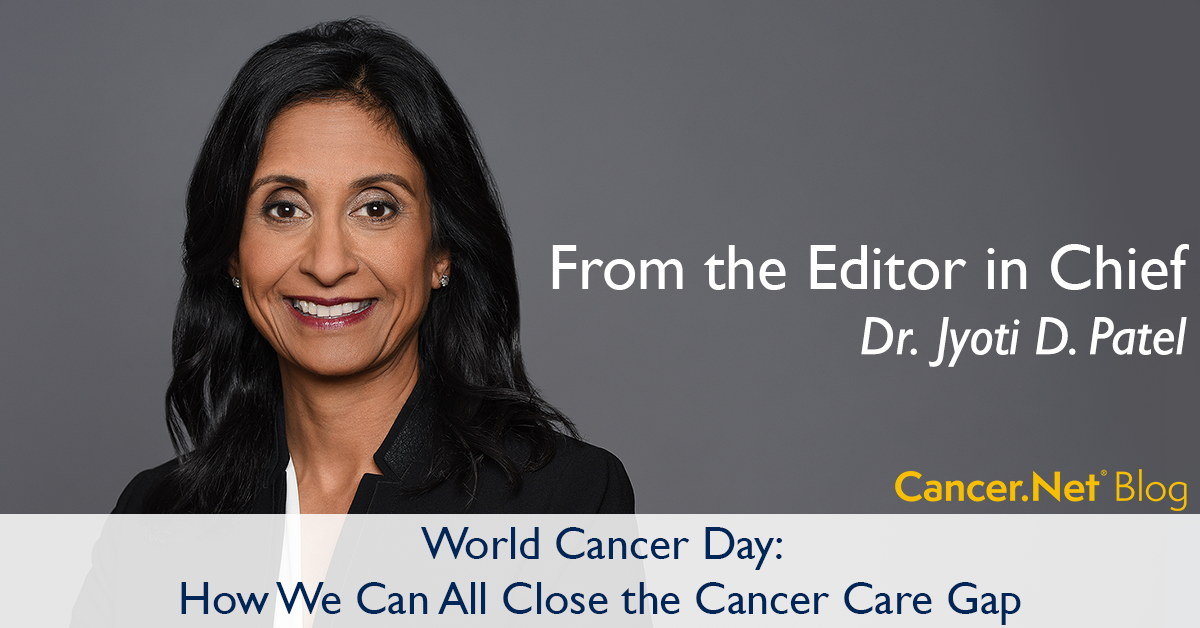
Each year on February 4, the international community unifies for World Cancer Day to raise awareness and encourage efforts for the prevention, detection, and treatment of cancer. World Cancer Day was first established by the Union for International Cancer Control (UICC) in 2000. Now, every February 4th is marked by the global cancer community, governments, and individuals around the world coming together to lessen the burden of cancer worldwide.
The new theme for World Cancer Day for 2022 through 2024 is “Close the Care Gap.” We know that the toll of cancer on global health is enormous. Nearly 10 million people died from cancer worldwide in 2020, according to the International Agency for Research on Cancer, and inequities in cancer care across the world only compound that burden. There is no doubt that global disparities in access to cancer prevention, treatment, and palliative care are growing exponentially, and these disparities have only been worsened by the global COVID-19 pandemic.
To me, “closing the care gap” means that we confront the difficult truths that face so many people who seek cancer care. It is time that we find ways to lessen inequities based upon income, education, and location, and that we overcome discrimination based on race, ethnicity, gender, age, sexual orientation, and lifestyle, all of which are factors that can negatively impact cancer care.
This gap affects everyone in our communities. For example, according to the World Health Organization, nearly 90% of cervical cancer deaths occur in low- and middle-income countries where cancer prevention through vaccination and screening rates are low. In addition, in the United States, Black women are 40% more likely to die of breast cancer than white women, according to the Centers for Disease Control and Prevention. And finally, more than half of all new cancer cases occur in people aged 65 and older. People in this age group account for 70% of cancer deaths, according to a 2015 study.
We live in a time when astounding advancements in our understanding of cancer biology have led to significant improvements in cancer prevention, diagnosis, and treatment. But unfortunately, half the world’s population still doesn’t have access to the full range of essential health services, such as maternal and newborn care, routine immunizations, sexual and reproductive health services, and treatment of chronic illnesses.
Together as a cancer community, we can work toward health equity through education about cancer prevention, developing a health care workforce with skills and knowledge about how inequity impacts cancer care, and implementing strategies that work in local communities. As part of these efforts, the American Society of Clinical Oncology (ASCO) has launched its Equity, Diversity, and Inclusion Action Plan. This plan includes goals centered on bringing more diverse representation into cancer clinical trials, equipping oncologists to deliver quality care to every patient, and minimizing the barriers that reduce access to cancer care.
This World Cancer Day, we look toward a future where cancer care is not impacted by where you live, your background, or how you identify. We must all take steps toward making sure all people with cancer receive the care they need, no matter where in the world they are.






